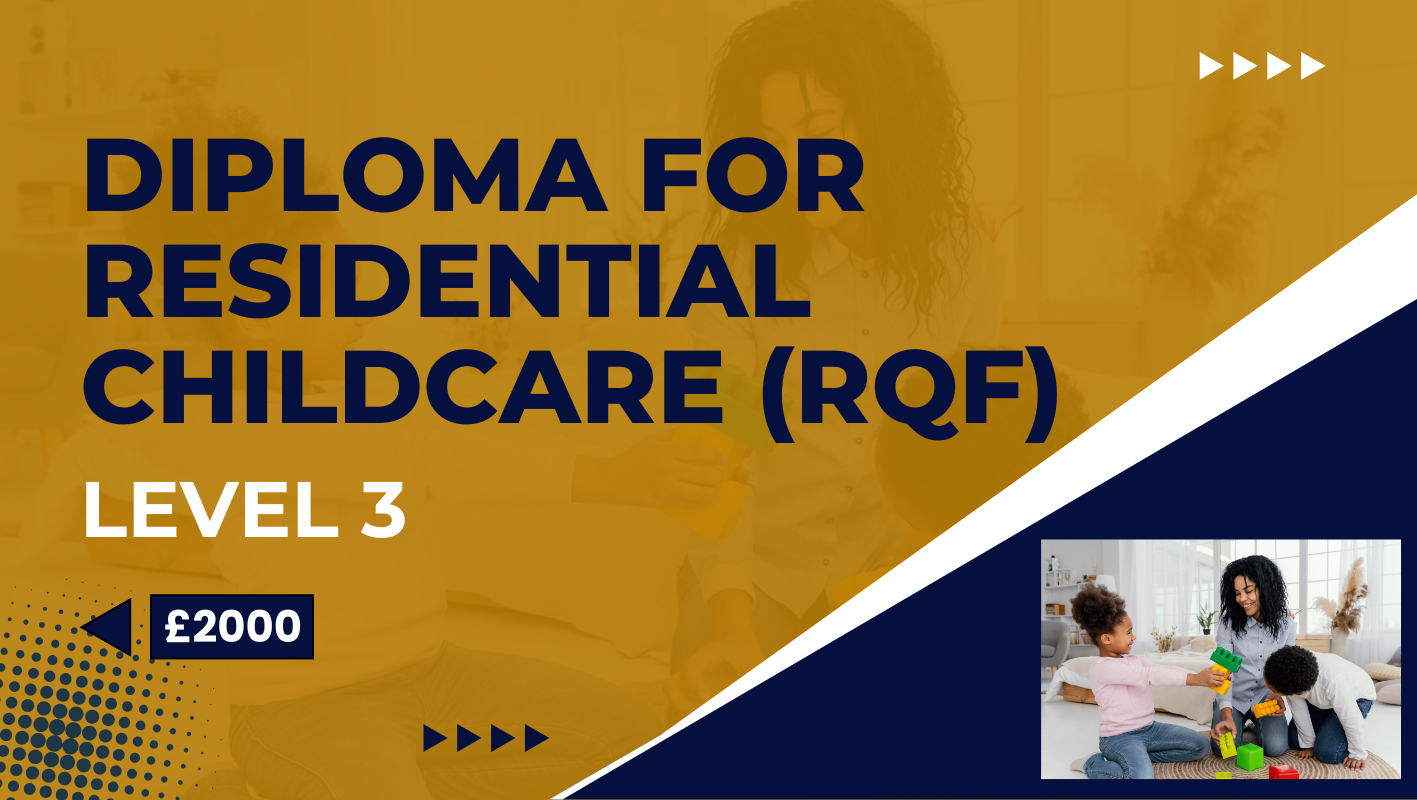Shopping cart
No products in the cart.
No products in the cart.
The Level 3 Diploma for Residential Childcare (RQF) is a nationally recognised qualification for individuals who work, or are preparing to work, in residential childcare settings. It equips learners with the skills to support vulnerable children and young people who may have complex needs due to past trauma, abuse, or neglect.
📌 Entry Requirements
🖥️ Learning Features
🎯 Career Progression
On successful completion, learners can progress to:
Total 5 Ratings
Taking the NVQ Level 3 course has been a very positive experience for me. It was a good match for my learning style because it is practical and work-based, which helped me apply what I was learning directly to my job. I found the course content relevant to my role, especially in areas like safeguarding, communication, person-centred care, and health and safety. It has improved my knowledge, skills, and confidence at work, and it has also helped me progress in my career. Thank you.
Excellent experience to learn
This course is very rich and easy to learn
Very meaningful and appropriate to our work..
The course is going on so smoothly

5.00 /2
0 /0
IN-HOUSE TRAINING ENQUIRY
IN-PERSON TRAINING ENQUIRY